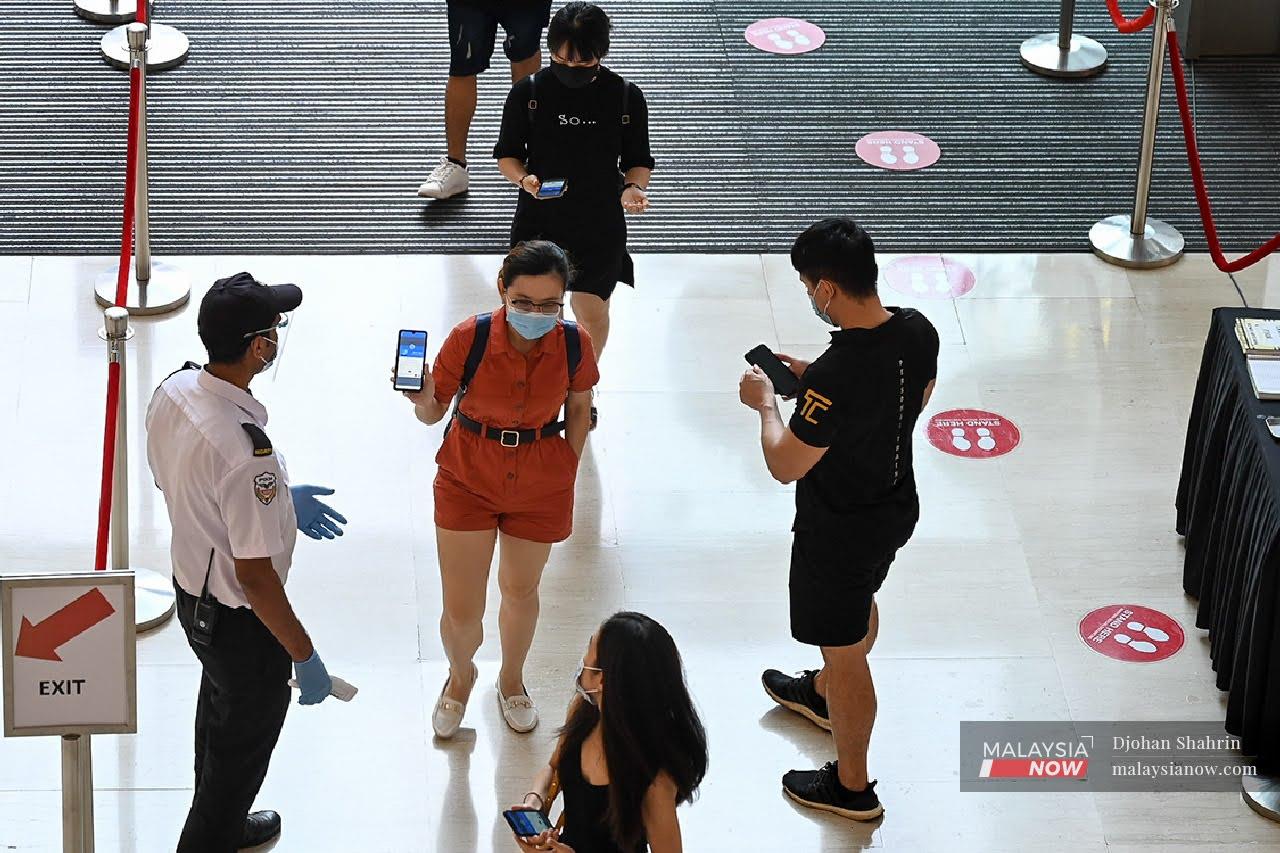How Covid-19 shaped the buzzwords of 2020
A look at five virus-related terms that have become a part of everyday conversation.
A year ago, Cik Kiah who runs a stall in Klang selling drinks and keropok lekor never thought she would have to take her business online in order to survive.
But the dawn of the Covid-19 pandemic in the country changed everything for her and countless other food stall owners, SMEs and even big businesses as movement restrictions, SOPs and border closures took their toll on the economy.
This brought about a push towards digitalisation and online platforms, with MalaysiaNow previously reporting that the stress of pandemic job-losses had hastened a process which experts predicted would take five years.
Along with the shift online came a host of other changes which shaped the buzzwords of 2020.
Here’s a look at some of the words on the tongue of nearly every Malaysian this year.
1. Digitalisation
When the initial movement control order (MCO) was imposed in March, businesses with the exception of essential services were forced to close down. In order to survive, many turned to the internet, setting up shop on online platforms instead.
Economist Yeah Kim Leng, who lectures at Sunway University Business School, expects the job market to eventually split into two groups, where mid-level jobs are performed by machines and AI and low-wage workers carry out jobs on the lower end of the spectrum.
This would see technologically proficient, high-wage earners, entrepreneurs and innovaters continuing to dominate the top end.
Fellow economist Barjoyai Bardai meanwhile warns against holding out for a return to the “old way” of doing things, saying the old economy is unlikely to recover.
Digitalisation will continue penetrating the market, and those who fail to adapt to IR 4.0 run the risk of losing out once the economy regains its footing, he said.
2. Lockdown
The MCO, imposed in March to curb the spread of Covid-19, was initially meant to last two weeks. It was extended several times before morphing into new stages including the conditional MCO and the recovery MCO. Meanwhile areas where the spread of infection was particularly bad were placed under enhanced MCO.
Although the government sought to discourage use of the term “lockdown”, it along with the various iterations of the MCO have become a regular part of conversation for many.
3. Quarantine
The mandatory 14-day quarantine for those entering the country or, in some cases, crossing state borders, became the topic of especially heated debate following news in July that a restaurant owner who broke home quarantine rules was the index case of the Sivagangga cluster in Kedah.
Throughout the year, public outcry has been swift over those caught violating the health ministry’s isolation orders. In August, a 72-year-old who broke home quarantine to eat at a cafe was reported to the authorities for threatening public safety.
Nur Emah Mohamad Hashim, who became known as “Makcik Gelang Pink”, a reference to the pink wristband worn by those under quarantine, was jailed one day and fined RM8,000.
4. SOPs
SOPs or standard operating procedures have been a big part of life for Malaysians this year. Typical SOPs include the use of face masks in public areas, frequent hand washing, limits on the number of people allowed in a particular spot and the use of the MySejahtera app or an equivalent means of recording public movement.
Failure to comply with health SOPs could see offenders fined RM1,000 while Senior Minister for Security Ismail Sabri Yaakob said in August that those who deliberately violate the SOPs would be subject to legal action.
5. Social distancing
By now, Malaysians are familiar with the directive to maintain a one-meter distance from the next person to reduce the risk of Covid-19 transmission.
The virus, which spreads when an infected person coughs, sneezes or talks, releasing droplets from their mouth or nose, has been found to survive for hours on a surface depending on external factors such as temperature and humidity.
The government has regularly reminded people to keep a safe distance between one another, with signs encouraging social or physical distancing put up at shopping malls and other public spaces.
Subscribe to our newsletter
To be updated with all the latest news and analyses daily.
